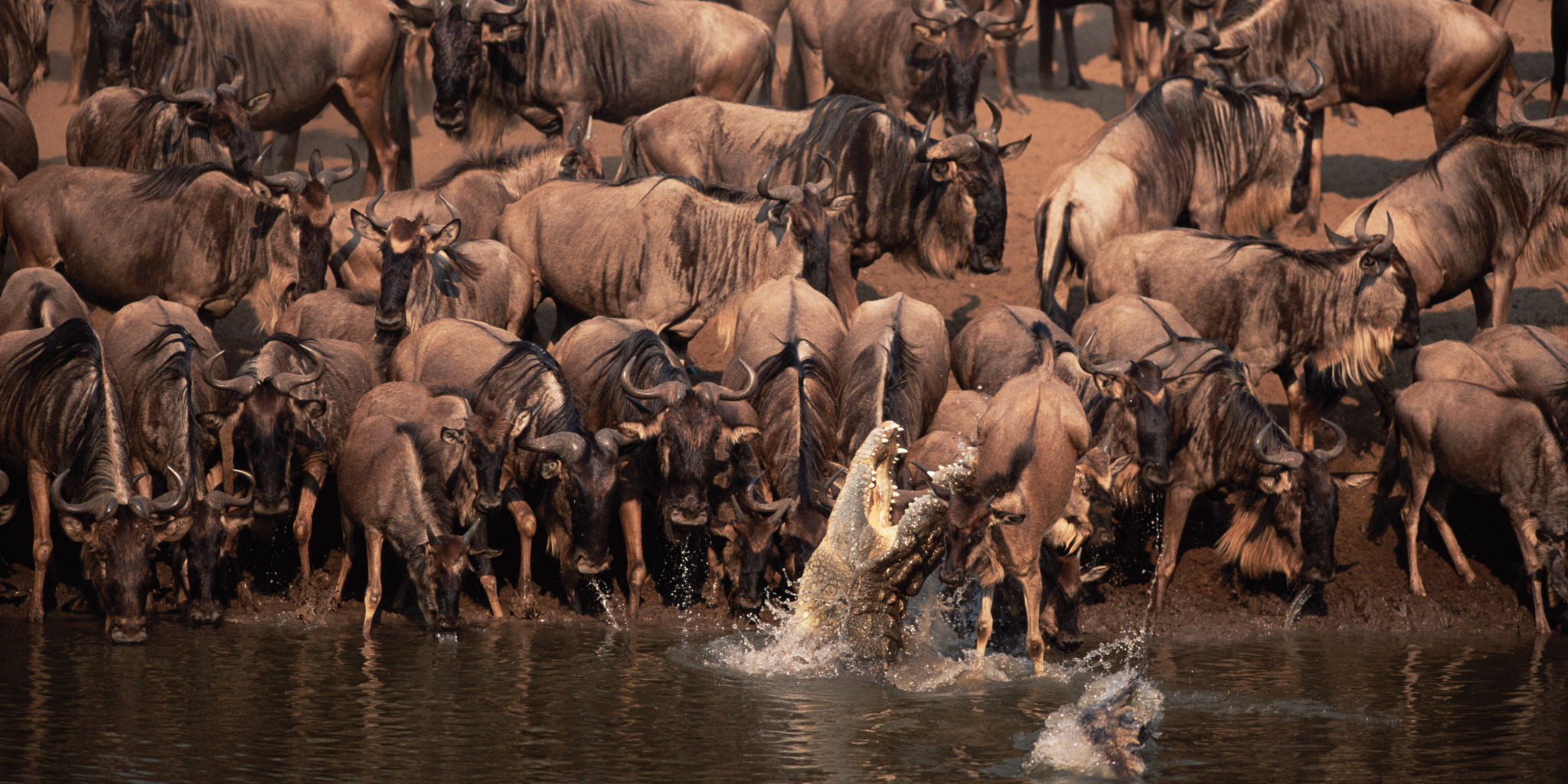Where is the Great Migration located and why?
It is very common that the entire of the southern Serengeti receives no rain throughout Tanzania's dry season. However, the northern Serengeti and Maasai Mara have a macro weather system that's dictated by the vast expanse of Lake Victoria. The ebb and flow of the moon provides rainfall throughout this period whilst the Ololoolo Escarpment running along the western side of the Mara draws in further rain clouds that tend to focus the herds to the western part of the region. This is backed up by satellite data we have that clearly shows the herds focusing on the areas around the Mara River.
The Mara itself is in fact a relatively 'young' habitat compared to the Serengeti; a poor grazing area in comparison to the southern and western Serengeti. The reality however is the herds have no choice but to spend the dry season in this region. The major obstacle for the herds, and the major draw for tourists, is the Mara River around Kogatende and the Lamai Wedge on the Tanzanian side, and the paradise plains area of the Maasai Mara in Kenya. Fed by rainfall on the Mau Escarpment to the north the Mara River flows continually throughout the year and provides a much greater challenge than the Grumeti River found further south in the Serengeti itself.
The herds will use specific crossing points every year, and will cross to and from both sides of the river in search of good grasses. There is an argument that the herds cross north in July/August and south again in October. To an extent this is true – major crossings do happen at the beginning and end of this season - however just by looking at the Mara River on a map you can see what happens throughout August, September and October. The herds are moving around the entire region following rain and fresh grasses - north, south, wherever the rain is. The river will be in the way a number of times over this period!
 USA
USA
 UK / International
UK / International
 CA
CA
 Australia
Australia










